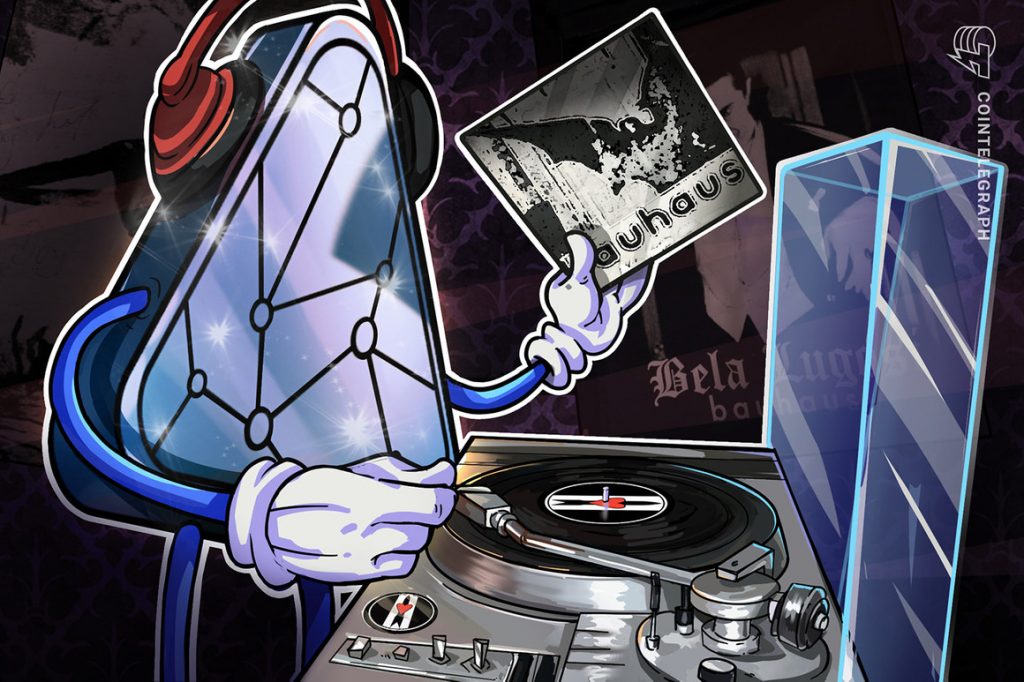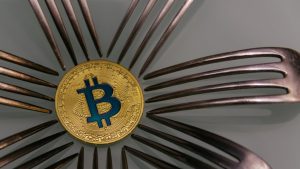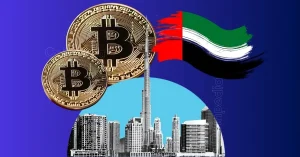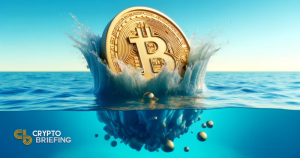Thanks to Bauhaus, I totally get NFTs now

On Friday of last week, I got a press release from Grace at a music and public relations firm called 23, and Grace wanted to know if I was interested in running a feature on a series of nonfungible tokens, or NFTs.
I almost instinctively replied “I am not, as I am actually exhausted reading these pitches about the half-baked efforts of minor celebrities to get a fat payday thanks to rich cryptopreneurs with more Ether (ETH) than sense,” and then I’d usually rant, and rant, and move on. Except I’m not really that rude to well-intentioned PR people who have no idea that I get 50 of these every day.
And yeah, it was a pitch about minor celebrities.
But I didn’t move on, as this time they happen to be my minor celebrities, and all I can suddenly think about is driving down to California next week to go bid on their NFT and maybe have a drink or two with the band, perhaps slipping in a sly reference to their music to prove that yeah, I was really there, and I’m not some pseud speculator — I’m one of you.
The band in question is Love and Rockets, which is already a lie — actually it’s Bauhaus. But despite feeling like The Oldest Person in Crypto, I’m not quite old enough to have truly appreciated Bauhaus as they developed gothic rock, because they split up when I was 12. And so, Pete Murphy — sorry mate, but you’re not part of this, even though you’re a genius.
But you literally can’t have Bauhaus without Love and Rockets because Daniel Ash, Kevin Haskins and David J were in both bands. Ergo, anything that Bauhaus produces must also be produced by Love and Rockets, and because Love and Rockets are the band that got me through being a teenager, I now totally get NFTs — even if the NFT is from Bauhaus. You’re following, right?
And I now get NFTs on a truly visceral level — on that acquisitive, grabby, FOMO level that has driven prices to insane heights as people buy up Tony Hawk and Snoop Dogg and Grimes and Paris freaking Hilton and Ronaldinho and Gianluigi Buffon and Robbie Fowler and Every Other Retired Footballer You Care To Name and Soulja Boy and William Shatner… you get the picture.
In March 2020, when I was putting together a series of articles on crypto art for Cointelegraph Magazine, I almost bought a piece.
It was a Josie Bellini. And when I say I almost bought a piece, I mean that in my head, I was close. I bid around 25 ETH on it, which I justified to myself as both an investment and an expression of solidarity with the artists, all of them, as it was immediately apparent to me that the crypto art community was by far the nicest, most thoughtful, most supportive community in the whole industry. Nothing has happened to dissuade me of that, by the way.
Related: NFTs are a game changer for independent artists and musicians
Anyway, at the time, 25 ETH was about $3,000, and that’s crazy money for anything arty. But the fact is I probably never stood a chance. I was bidding against MetaKovan, the guy who dropped $69 million on a Beeple this year, and I suspect it didn’t really matter what I bid.
But even though I loved the work, it was at a slightly detached level. I was looking for a piece of art to buy, and Josie’s spoke louder than anything else in the store. It didn’t find me; I found it. And I’m not 100% sure that’s how you buy art.
So, back to Love and Rockets, or Bauhaus if you must, and specifically to this teenage student living in a single room on the top floor of a boarding house in The Mumbles outside Swansea, trying to learn Russian for reasons that made no sense then, and that make no sense now. He’s been listening to Love and Rockets for years on straggly cassette tapes, he’s decided that his life’s motto is going to be Live the life you love / Use a god you trust / And don’t take it all too seriously, and his copy of Seventh Dream of Teenage Heaven got chewed up in a fight with a Talbot Horizon (Americans, read: Dodge Omni), and he’s basically penniless. I mean, really freaking poor — hitchhiking everywhere, living off winnings dispensed by the trivia machine at the university. And with (no exaggeration) the last 50 quid in his account, he goes out and buys all four Love and Rockets albums on CD in a kind of late-teenage fuck-you to reality, knowing that food — perhaps even drink — will not get him through this, but A Private Future just might.
This is how art finds you.
It finds you where you truly are. Or maybe where you truly were, but where you can be transported in a fraction of a second by a few notes and the memory of a truly terrible choice involving your hair, an aerosol and a girl named Caroline.
And as soon as I imagined owning some moment from the history I shared with the members of Love and Rockets, the art found me, and instilled a powerful, dramatic urge to connect. It brought me closer to my past.
I realize now that NFTs — and I’m talking about the limited, expensive ones here — are already divided into two camps: the material and the experiential. There’s the CryptoPunks, which are kind of like baseball cards and which are basically a speculative instrument because, let’s face it, the aesthetic isn’t selling these things for $10 million or more.
And in the other camp, there’s the memorabilia, the ars gratia artis, the one-off moments from NBA Top Shot. The experiential NFTs are selling because they trigger responses, memories and emotions… People who wouldn’t spend $5,000 on art might spend it on music, people who wouldn’t spend $5,000 on music might spend it on sports tickets, people who wouldn’t spend $5,000 on sports might spend it on land in a metaverse next-door to a friend, and people who wouldn’t spend $5,000 on virtual land might donate it to charity.
Detractors may not get it because they’re focused on the material NFTs — $69 million is a lot to pay for any artwork, never mind one with a mixed critical reception — but part of MetaKovan’s justification for the price was that it enabled him to become part of art history and to publicly celebrate the fact that an art world dominated by wealthy, white, Western collectors is changing to be more inclusive. MetaKovan bought himself a legacy.
People are buying experiential NFTs because they crave connection, not just because they want to get rich. We’re suffering through an increasingly disconnected experience of our world, and those things that bring us closer to our communities and heroes are valuable. (There’s no doubt in my mind that social tokens are going to take off in a big way in 2022, if not before.)
Art, music, sports… it can all have meaning. A sense of where you were and what you were doing at the exact moment in time that you were a different person. Maybe happier, maybe sadder, maybe less evolved or maybe more carefree. Experiential NFTs are a way to connect more deeply with the experiences and emotions that shape us — to literally own the moment.
Related: Haute couture goes NFT: Digitalization at Paris Fashion Week
I probably won’t go down to California for the show — I doubt I have enough Ether to buy any of the Bauhaus NFTs. I was going to hit up Coldie, who’s collaborating with Bauhaus on this project (he’s a wonderful artist and a mainstay of the crypto art community who I wrote about for that Art Week feature last year) but I didn’t want to put him in the awkward position of having to tell me to piss off and pay up.
And what would I do there anyway? You should never meet your heroes, especially not as a fanboy journalist.
Even as I write this, I’ve begun to find ways to abstract away my emotional response to the press release Grace sent last week. It’s Bauhaus, not Love and Rockets, no matter how hard I might try to convince myself. Bela Lugosi’s Dead never really spoke to me. Goth rock isn’t my thing anymore. I’d probably try and get Daniel Ash to fight Pete Murphy. I never really lived up to the motto anyway.
But hey. Thanks, Grace. Thanks to Pete, Kevin, David and Daniel. Thanks, Coldie. Thanks for giving me a moment alone with my teenage self.
I’m going to listen to Saudade right now because that seems appropriate.
Bauhaus and Coldie will also host an IRL auction party featuring the art at Bright Moments NFT Gallery in Venice Beach on Aug. 10. Everyone who attends the IRL show will receive 3D glasses to view the work.















